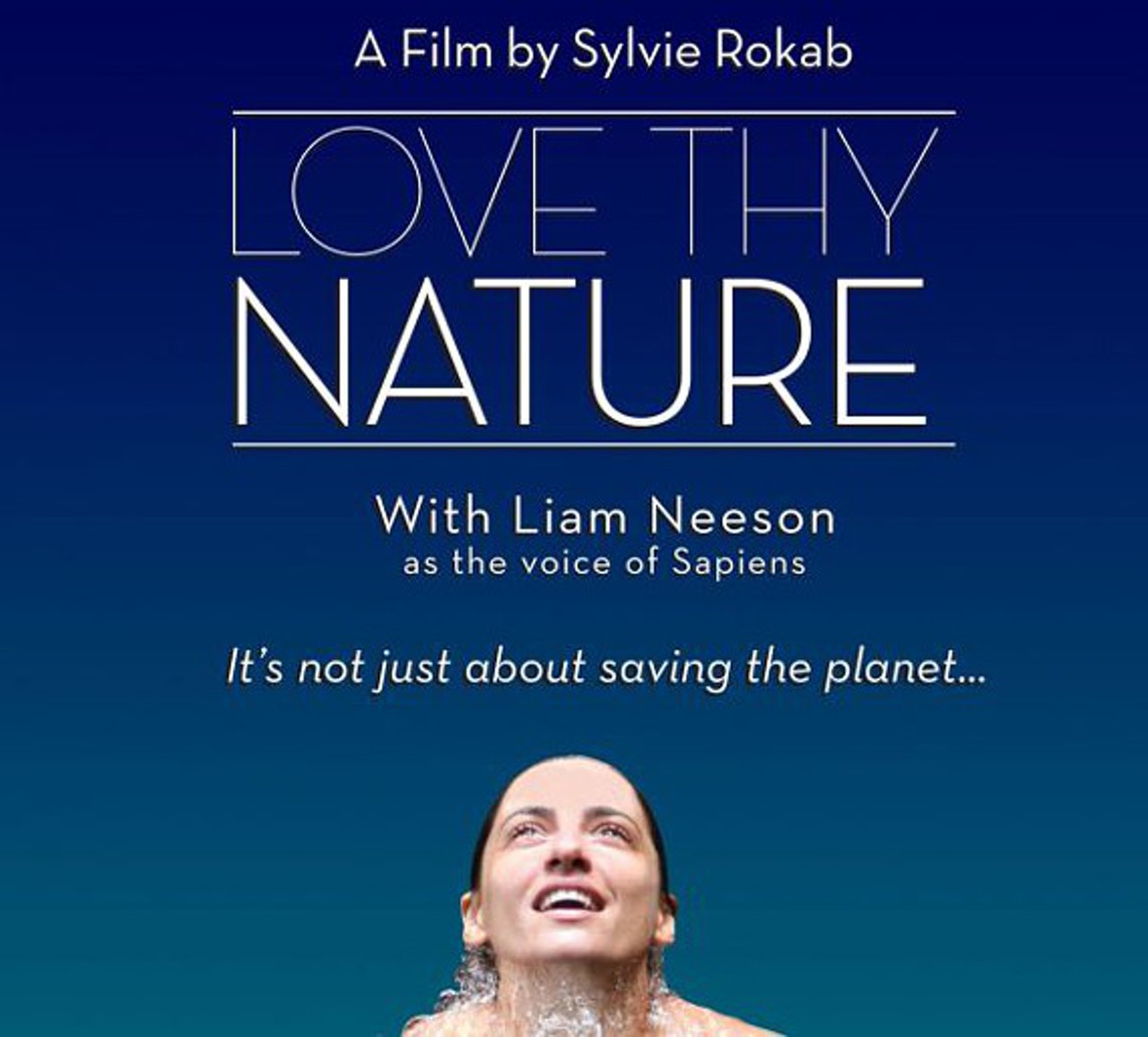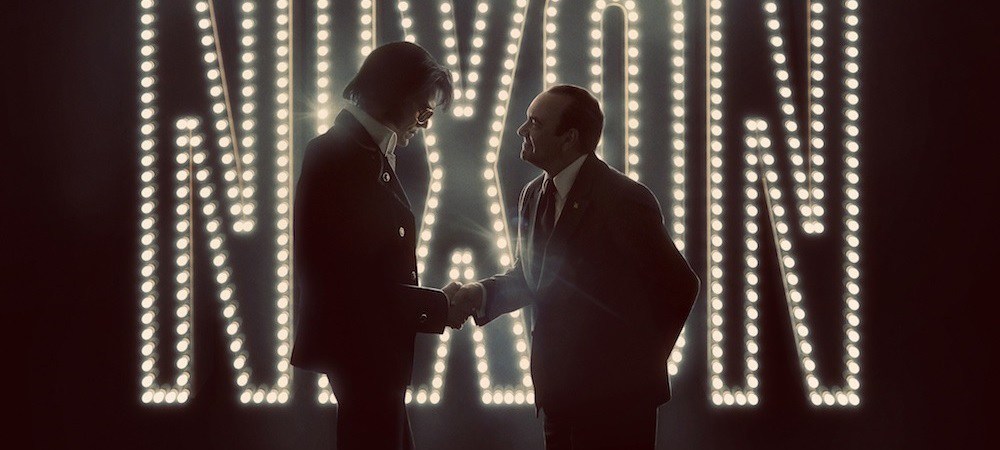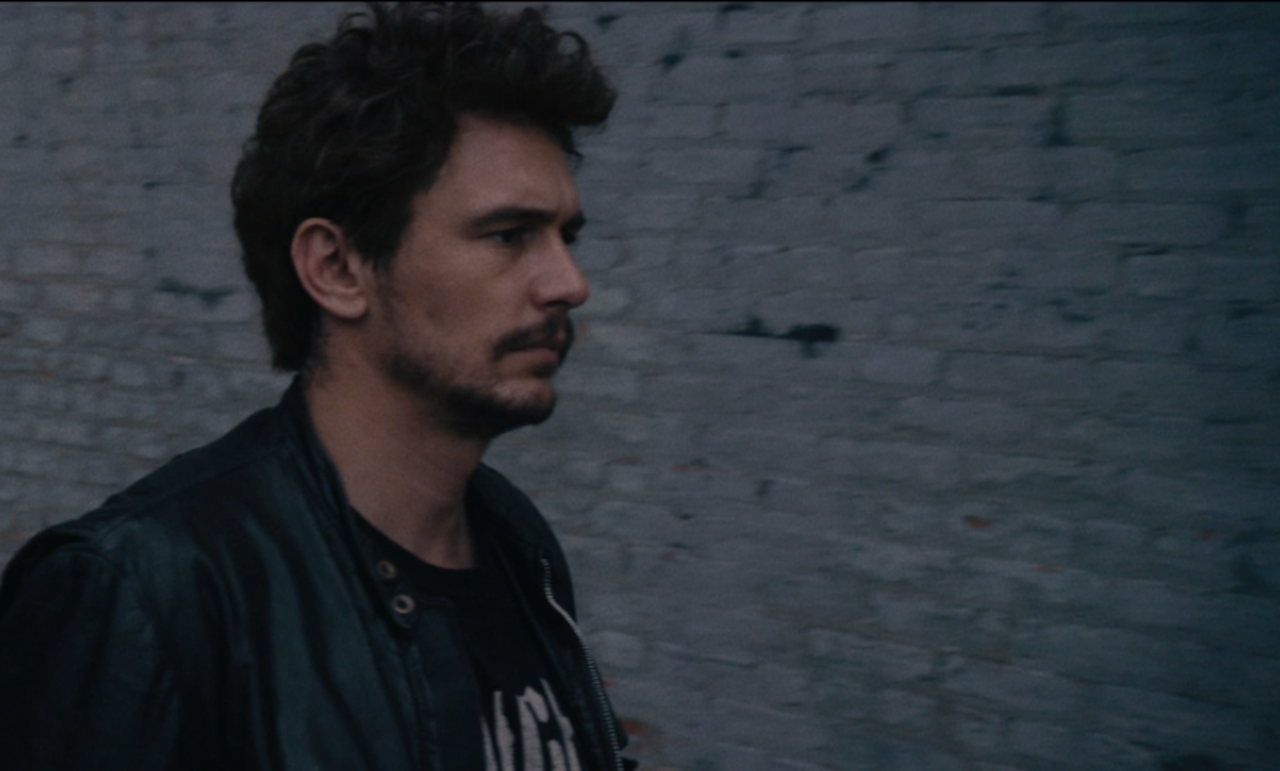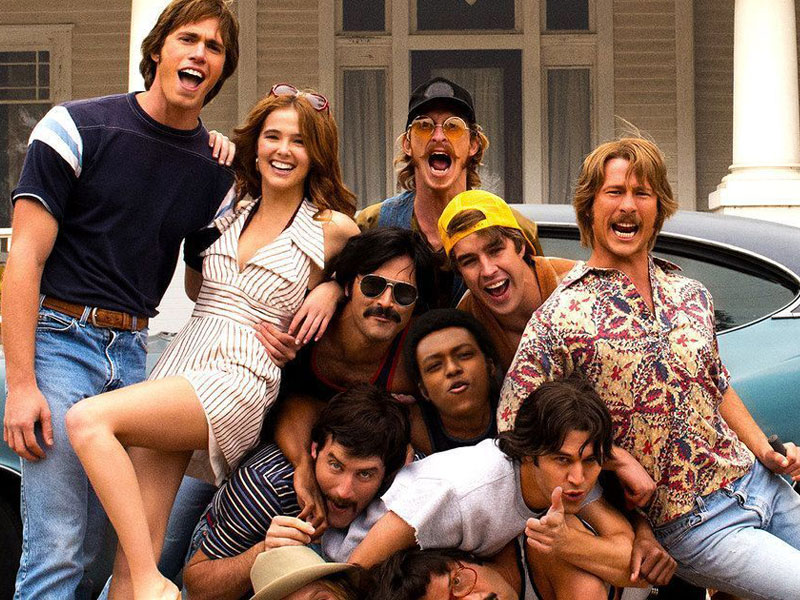Love Thy Nature
by Cat McAlpine
The best way to convince people that caring for the planet is badass is to have a badass tell them so. This is what I was hoping to get from Liam Neeson’s narration of Love Thy Nature. This is not what I got.
Neeson’s involvement is featured heavily in the documentary’s promotions, but his real role is much smaller than that of “narrator.” Neeson voices “sapiens, homo sapiens” – essentially speaking for the human race. The choice to involve the human race as a whole and to engage it, quite literally, in a dialogue is interesting but ultimately not effective. Neeson’s script is heavy handed, ending musing thoughts with sudden reversals like “Or is it?” or “Could I be wrong?”
The film itself proceeds like any shown in a high school science classroom. Picturesque landscape shots cover the basics; rocks, beach, underwater, trees, the savannah. These shots are accompanied by a litany of new age talking heads, cartoonish and often unnecessary animations, and an excessive amount of footage featuring people gazing into the distance.
What’s most perplexing is that the talking heads never seem to say much of merit. The film has good heart, urging that we reconnect with the planet, but when it comes to facts or statistics, an entire cast of scientific professionals has little to offer. One talking head claims that “slathering ourselves with sunblock or covering up actually increases the risk of skin cancer.” There’s no follow up.
Love Thy Nature is segmented by profound quotes about man and nature, displayed on the screen in white lettering on the same hazy forest backdrop each time. The quotes seem to have little purpose other than to be inspirational.
While the film eventually suggests that we can use technology to further our relationship with nature, a bizarre cut early on seems to suggest that children playing video games leads to forest fires.
Eventually, director Sylvie Rokab settles on the idea of biomimicry, an engineering field that focuses on using designs that are naturally occurring. It seems like this is what Love Thy Nature has been building toward, the ultimate reconnection of man and nature. The segment lasts about a minute or two, with few hard facts, and then is over.
Rokab is obviously dedicated to this cause, also co-writing the script and story and leading the Kickstarter that funded the project. It is a noble cause. Sapiens, Homo Sapiens, will find it hard to deny a cry to take better care of both our planet and ourselves. But this Earth Day is better served by skipping the film and going outside.
https://www.youtube.com/watch?v=TVNFkOBswEI










